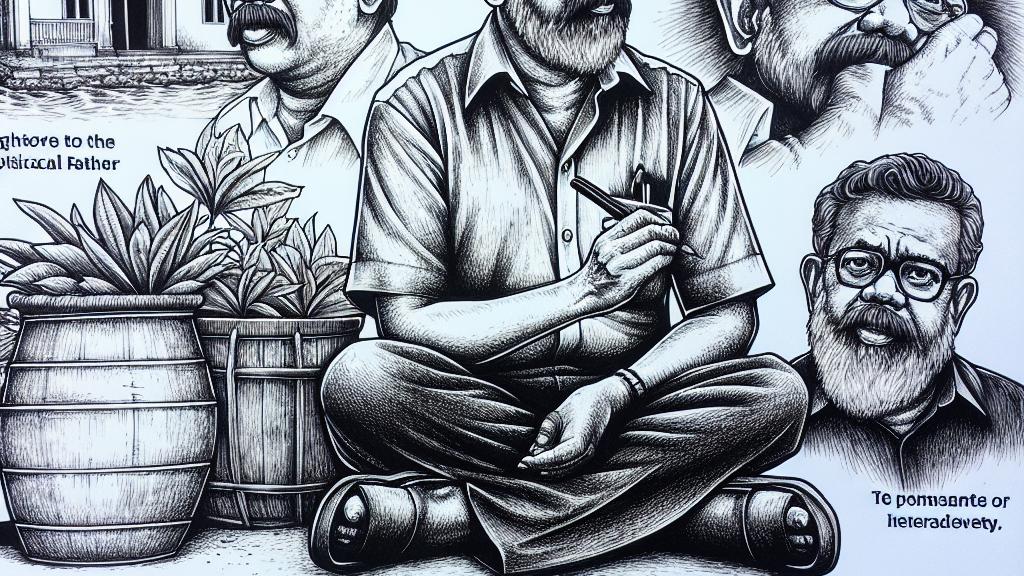Anura Kumara Dissanayake: Rising from Adversity to Presidency in Sri Lanka
Overview
- Anura Kumara Dissanayake's recent victory marks a transformative chapter in Sri Lanka's political landscape.
- Emerging from a humble farming background, he stands as a beacon of hope for ordinary citizens seeking significant change.
- Dissanayake's commitment to economic recovery and racial harmony resonates deeply with a nation eager for unity and progress.

Dissanayake's Early Life and Political Awakening
Born in the serene yet challenging environment of Anuradhapura, Sri Lanka, Anura Kumara Dissanayake's early life was shaped by humble beginnings. His father served as an office aide, and his mother dedicated herself to managing their household. These modest origins did not hinder Dissanayake; rather, they fueled his passion for societal transformation. As a student, he became increasingly disillusioned with the existing government, which led him to the Janatha Vimukthi Peramuna (JVP), a party steeped in Marxist-Leninist principles. A crucial turning point came when he witnessed the tragic death of his cousin during the 1980s insurrection, an event etched in his memory. The violent nature of state repression he encountered, including the destruction of his family's home, instilled in him a fierce resolve to advocate for justice and equality. Through these tough experiences, he grew determined to challenge oppression and fight for the rights of the marginalized.
The Rise of Dissanayake in Politics
Dissanayake's journey through the political arena has been inspiring and noteworthy. After entering parliament in 2000, his career blossomed as he served as Minister of Agriculture, where he honed invaluable leadership skills. By 2014, he had assumed the role of JVP leader, promoting a vision characterized by inclusivity and progressive change. His distinctive leadership style emphasizes collaboration; he actively seeks out diverse perspectives and values teamwork in decision-making. Colleagues praise him for his ability to synthesize various viewpoints into cohesive strategies. His captivating speeches, rich with passion and informed by facts, often left audiences in awe. During the political crisis of 2018, he stood out as a vigorous critic of President Maithripala Sirisena, arguing for transparency and accountability. Dissanayake's commitment to unity among Sri Lanka's diverse communities was evident, as he actively encouraged cooperation between different groups, reinforcing the idea that a collective effort is crucial for national rejuvenation.
Victory and Future Aspirations
The presidential election held on September 21, 2024, represented a pivotal moment in Sri Lanka's history. Anura Kumara Dissanayake emerged victorious, capturing an impressive 42% of the votes, decisively defeating the incumbent Ranil Wickremesinghe, who garnered a mere 17%. This result was not just a victory; it symbolized a broader desire among the populace for substantial reform and a departure from the old political guard. Dissanayake's campaign centered on essential issues—economic recovery, tackling the soaring cost of living, and bridging ethnic divides. He envisions a Sri Lanka where social equity prevails, and where every citizen's voice matters. With a clear mandate, Dissanayake is poised to implement transformative measures that promise to stabilize the economy and promote reconciliation among different ethnicities. As he assumes the presidency, he carries the hopes and dreams of a nation craving a brighter, more unified future, where prosperity and peace can thrive together.

Loading...